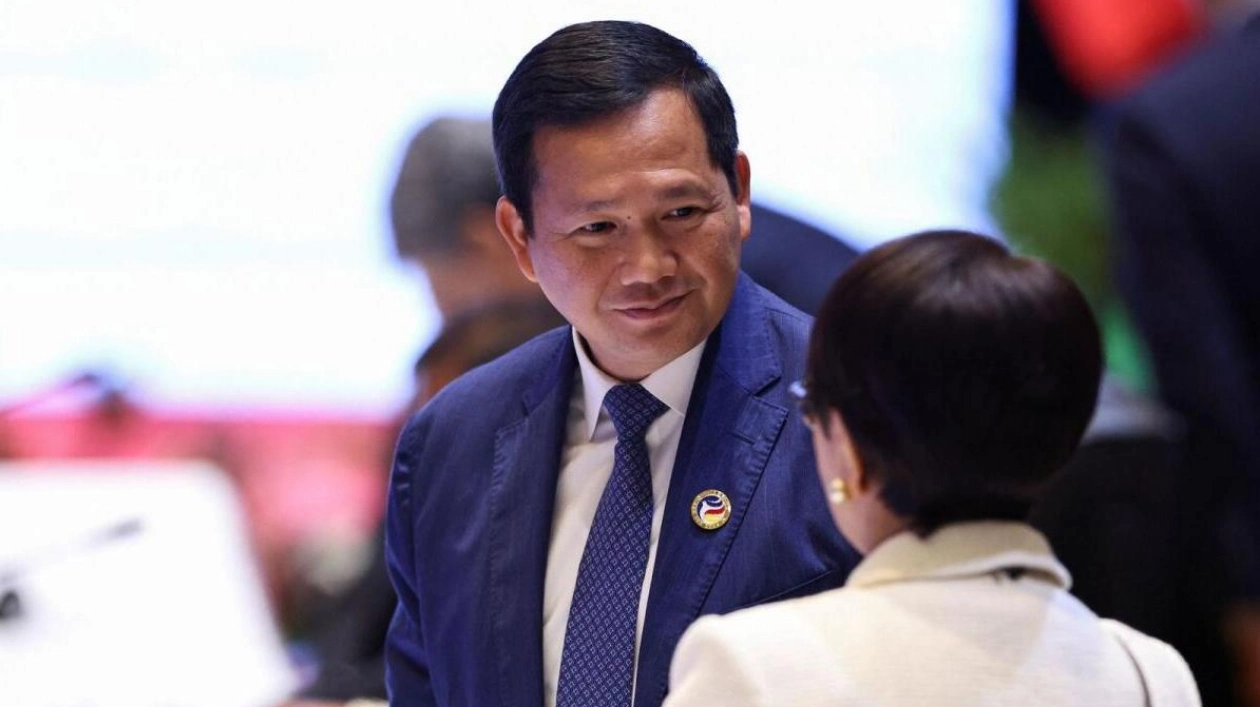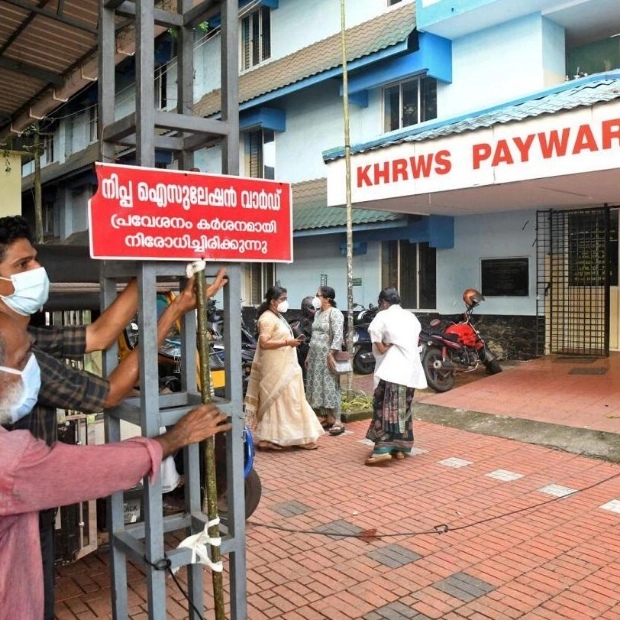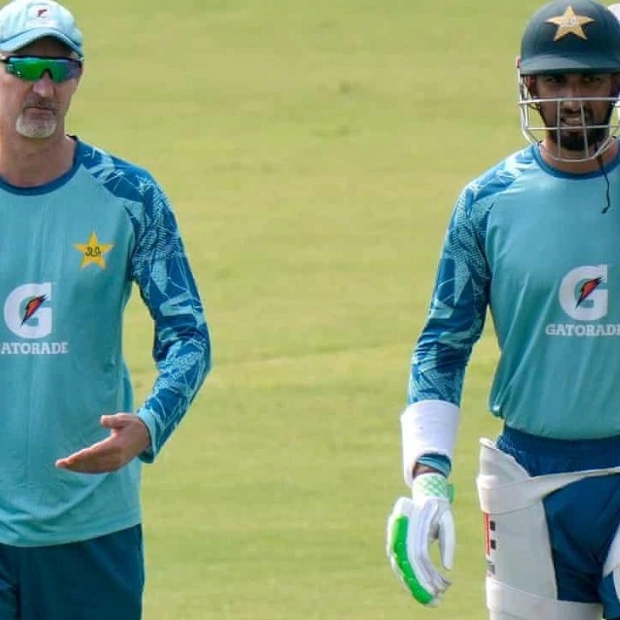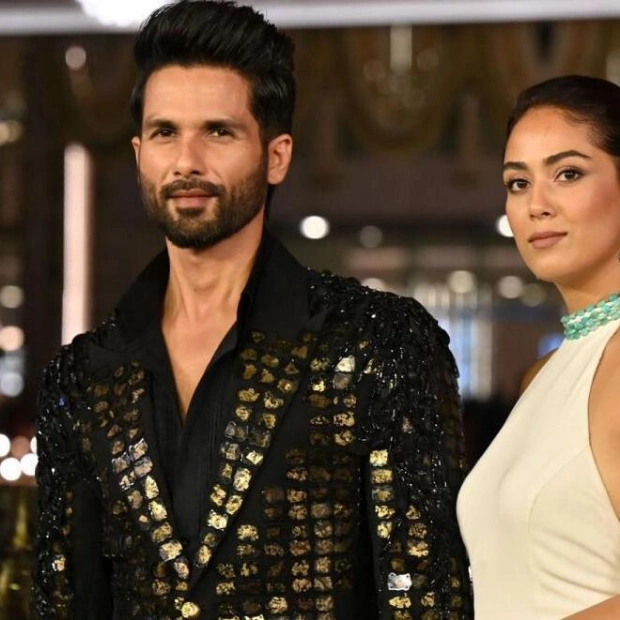Cambodia's Prime Minister Hun Manet participated in the plenary session of the 44th Asean Summit at the National Convention Centre in Vientiane, Laos, on October 9, as reported by Reuters.
At the Asean summit in Vientiane, Hun Manet maintained a discreet presence, engaging in private meetings with other leaders but refraining from making any public statements to the media. A former military officer, he swiftly moved past the waiting journalists upon his arrival for the summit sessions, his most lively interaction being a cheerful conversation with Singapore's foreign minister. Over a year since he assumed power from his father, Hun Sen, he has not yet held a public press conference to elucidate his strategies for addressing challenges such as balancing relations between China and the West. In contrast, Hun Sen frequently shares his views on government policies with his millions of social media followers. Analysts suggest that Hun Sen still holds significant influence in the Southeast Asian nation.
Officially, Hun Sen relinquished his position last year after nearly four decades of authoritative rule, handing over the reins to his eldest son following a decisive victory in national elections that lacked substantial opposition. Hun Manet will turn 47 on October 20, marking 14 months in office. By this age, his father had already served as prime minister for 15 years. In February, Hun Sen assumed the presidency of the senate, the country's second-highest ceremonial role after King Norodom Sihamoni, and has since personally hosted every visiting foreign dignitary, mirroring his actions during his tenure as prime minister. A few months later, he openly asserted his continued authority, stating, "I have not concluded my political life. I am the father of the prime minister."
In a May video, Hun Sen contemplated whether the groundbreaking ceremony for a billion-dollar canal project could be moved up from the year-end, as proposed by the government. The event was subsequently rescheduled to August 5, coinciding with Hun Sen's 72nd birthday. Hun Sen, a former Khmer Rouge member, came to power in 1985 and played a pivotal role in modernizing a nation ravaged by civil war and genocide. By the time he stepped down, he was Asia's longest-serving leader, supported by a loyal elite class and with nearly all opposition effectively suppressed through state-sponsored repression and politicized courts. His youngest son, Hun Many, serves as a deputy prime minister, his third son heads military intelligence, and several of his allies' children hold top positions.
Hun Manet "symbolizes a fresh face for an established system," according to Sebastian Strangio, author of "Hun Sen's Cambodia." Strangio noted that the past year has underscored Hun Sen's continued dominance and influence in Cambodian politics, maintaining a crucial role in decision-making. The senate presidency, he added, "has evolved from a ceremonial position to an alternative axis of power within the Cambodian political structure."
Hun Manet graduated from the US Military Academy at West Point in 1999 and was meticulously prepared for his current role by his father. His amiable demeanor and calm demeanor contrast sharply with Hun Sen's stern appearance and frequent confrontational exchanges with journalists covering human rights and corruption issues. Hun Manet has adopted a "more technocratic and measured approach" compared to his father's authoritarian style, according to Sophal Ear of the Thunderbird School of Global Management at Arizona State University. "It seems there's a dual leadership dynamic in effect, where Hun Sen retains substantial influence over major decisions, particularly in sensitive areas like foreign policy and security," Ear said. "Hun Manet may oversee more of the day-to-day governance, but the larger strategic decisions likely involve both father and son."
However, the government's crackdowns on opponents and critics have not abated. Mech Dara, an award-winning journalist known for his coverage of human trafficking in the cyber scam industry, was arrested last month on charges of inciting social disorder. Additionally, an opposition leader was fined $1.5 million in July after commenting that Cambodia was "deteriorating in terms of democracy" under Hun Manet's leadership. Analysts believe Hun Manet faces several challenges, including economic recovery, internal party dynamics, and balancing relationships with China and Western countries. Sophal Ear cautioned, "Whether he can manage these challenges without heavily relying on his father remains an open question."






